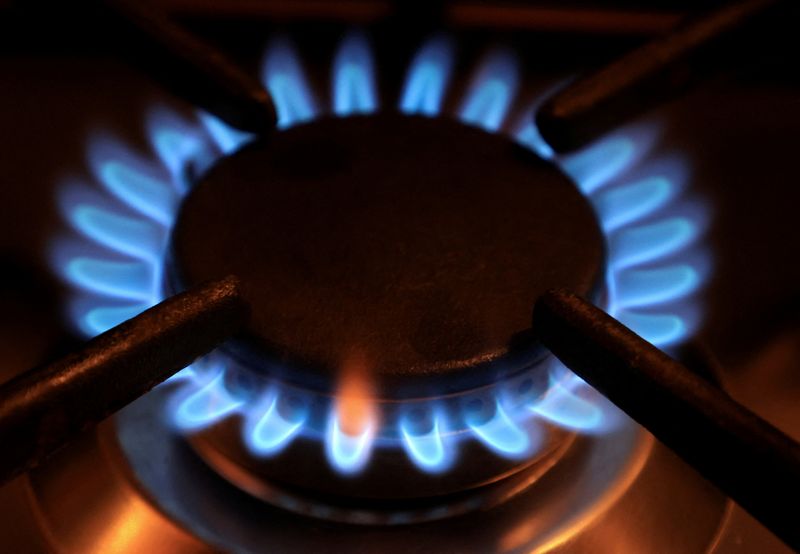BERLIN (Reuters) - German consumer sentiment is projected to hit a record low for the third month in a row in September as households brace for energy bills to go through the roof, a survey showed on Friday.
The GfK institute said its consumer sentiment index, based on a survey of around 2,000 Germans, fell to -36.5 heading into September, continuing a series of record lows that began in July, with a revised reading of -27.7 and continuing in August with a downwardly revised -30.9 points.
Analysts polled by Reuters expected a reading of -31.8.
"Fear of significantly higher energy costs in coming months is forcing many households to take precautions and put money aside for future energy bills," said GfK consumer expert Rolf Buerkl, who added that doing so was further depressing the consumer climate as there was less money for other purchases.
The institute warned that the situation could become even worse in coming weeks and months if there is not sufficient fuel, especially gas, to heat homes, pushing bills even higher.
German households will have to pay several hundred euros more a year for gas under a levy, to be imposed from Oct. 1 through to March 2024, that is meant to help utilities cover the cost of replacing Russian supplies.
The levy, foreseen as being adjusted every three months, could be set higher depending on market conditions, for example, if Russian energy giant Gazprom (MCX:GAZP) further cuts its deliveries via the Nord Stream 1 pipeline.
SEP 2022 AUG 2022 SEP 2021
Consumer climate -36.5 -30.9 -1.1
Consumer climate components AUG 2022 JUL 2022 AUG 2021
- willingness to buy -15.7 -14.5 10.3
- income expectations -45.3 -45.7 30.5
- business cycle expectations -17.6 -18.2 40.8
NOTE - The survey period was from Aug. 4-15, 2022.
The consumer climate indicator forecasts the development of real private consumption in the following month.
An indicator reading above zero signals year-on-year growth in private consumption. A value below zero indicates a drop compared with the same period a year earlier.
According to GfK, a one-point change in the indicator corresponds to a year-on-year change of 0.1% in private consumption.
The "willingness to buy" indicator represents the balance between positive and negative responses to the question: "Do you think now is a good time to buy major items?"

The income expectations sub-index reflects expectations about the development of household finances in the coming 12 months.
The additional business cycle expectations index reflects the assessment of those questioned of the general economic situation in the next 12 months.